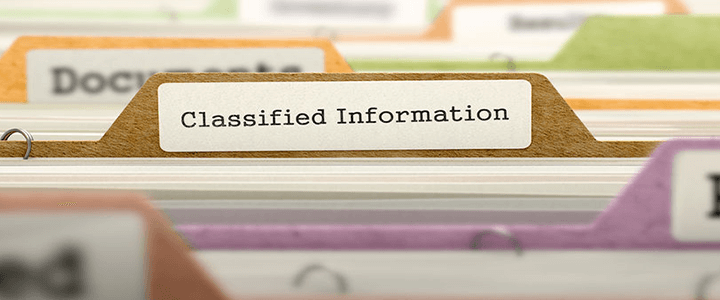Those who follow security law are familiar with the United States v. Daniel Hale case. Hale is a former intelligence analyst with the National Geospatial Agency who allegedly printed 36 documents unrelated to his duties at NSA, then provided at least 17 to a reporter and their news outlet, of which 11 were marked Secret or Top Secret. This occurred in the 2014 time period.
Hale pled not guilty in May to five charges, including obtaining national defense information; retention and transmission of national defense information; causing the communication of national defense information; disclosure of classified communications intelligence information; and theft of government property. These charges are part of the 100-year-old Espionage Act. Much of the leaked documents center around the United States’ covert drone program. While it seems to be clear the documents released were, in fact, classified, Hale’s team appears to be arguing the Espionage Act is meant to prosecute spying. They’re arguing Hale is not a spy, but instead a whistleblower – entitled to relief from prosecution.
Last week the United States filed a motion in limine asking the court to preemptively keep out certain defenses and evidence by Hale if they were to be raised at trial. A motion in limine is designed to keep the finder of fact (the jury) from hearing evidence that one side or the other deems to be “high prejudicial” against their case. While one might think you want your evidence to be “highly prejudicial” in order to persevere, the motion really attempts to preclude evidence that is irrelevant, confusing or that will be otherwise inadmissible at trial. In the Hale case, the United States asked to exclude:
- Defense mention of Hale’s good motive (immaterial to guilt or innocence).
- Speculative evidence of an alternative perpetrator that is unnamed.
- Any evidence that other people do it and don’t face repercussions.
- Mention of punishment the defendant might incur if convicted.
U.S. Government and the Daniel Hale Defense
Without going into the legal details of the motion, it is still interesting to see where the United States thinks the defense may go with their case. It will be equally as interesting to see how the defense responds to this motion. What will trump both of those events is the ruling by the court on these issues-it could go a long way in determining the resolution of the matter. The motion is set to be heard on October 18, but it would not be surprising if one side continues it, leading to a ruling in late fall or early winter of next year. Stay tuned.




